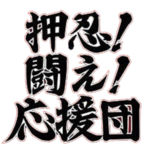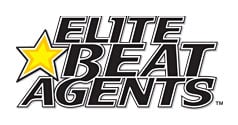List of minor Nintendo universes
This is a list of Nintendo universes with smaller forms of representation in the Super Smash Bros. series, such as with moveset elements, trophies, stickers, spirits, Mii costumes, or music.
1080°[edit]
| 1080° (universe) | |
|---|---|
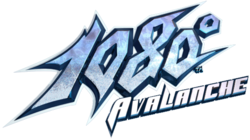
| |
| Developer(s) | Nintendo Nintendo Software Technology |
| Publisher(s) | Nintendo |
| Genre(s) | Sports |
| Console/platform of origin | Nintendo 64 |
| First installment | 1080° Snowboarding (1998) |
| Latest installment | 1080° Avalanche (2003) |
| Article on NintendoWiki | 1080° (universe) |
1080° (テン・エイティ, 1080°) is a series of snowboarding games released for the Nintendo 64 and GameCube.
A character from the first game (but not the second), Kensuke Kimachi, appears as a trophy in Super Smash Bros. Melee.
Akari Hayami, Ricky Winterborn, and his Snowman costume appear as stickers in Super Smash Bros. Brawl, with all of their artwork being taken from 1080° Avalanche. The music track, Golden Forest (1080° Snowboarding), appears in Super Smash Bros. Brawl in the My Music for Port Town Aero Dive.
Golden Forest (1080° Snowboarding) returns under the title, Golden Forest, in Super Smash Bros. for Wii U on the same stage.
Akari Hayami as she appears in 1080° Avalanche returns as a spirit in Super Smash Bros. Ultimate. Golden Forest once again returns, this time playing on stages listed in the "Other" category and, as of update version 8.1.0, the "Super Smash Bros." category.
And-Kensaku[edit]
| And-Kensaku (universe) | |
|---|---|

| |
| Developer(s) | Shift |
| Publisher(s) | Nintendo |
| Genre(s) | Party |
| Console/platform of origin | Wii |
| First installment | And-Kensaku (2010) |
| Latest installment | And-Kensaku (2010) |
And-Kensaku (安藤ケンサク, And-Kensaku) is a party game for the Wii in which players try to predict how many times a certain term has been searched on Google.
The game's host, Ando Kensaku, appears as a spirit in Super Smash Bros. Ultimate.
AR Games[edit]
| AR Games (universe) | |
|---|---|

| |
| Developer(s) | Arika |
| Publisher(s) | Nintendo |
| Genre(s) | Augmented reality |
| Console/platform of origin | 3DS (Pre-loaded app) |
| First installment | AR Games (2011) |
| Latest installment | AR Games (2011) |
AR Games (ARゲームズ, AR Games) is a built-in application in the Nintendo 3DS, showcasing the Augmented Reality capabilities of the system.
The Dragon Battle music appears in the Gamer stage in Super Smash Bros. for Wii U.
Dragon Battle returns in Super Smash Bros. Ultimate, this time playing on stages listed in the "Other" category and, as of update version 8.1.0, the "Super Smash Bros." category.
ASH: Archaic Sealed Heat[edit]
| Archaic Sealed Heat (universe) | |
|---|---|

| |
| Developer(s) | Mistwalker Racjin |
| Publisher(s) | Nintendo |
| Genre(s) | Tactical role-playing |
| Console/platform of origin | DS |
| First installment | ASH: Archaic Sealed Heat (2007) |
| Latest installment | ASH: Archaic Sealed Heat (2007) |
- For the Chinese smasher, see Smasher:ASH.
ASH: Archaic Sealed Heat (アルカイック シールド ヒート Archaic Sealed Heat) is a tactical role-playing game developed by Mistwalker and Racjin and published by Nintendo for the Nintendo DS in Japan in 2007. It features gameplay similar to the Fire Emblem series.
The protagonist of the game, Princess Aisya, appears as a spirit in Super Smash Bros. Ultimate.
Astral Chain[edit]
| Astral Chain (universe) | |
|---|---|
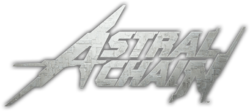
| |
| Developer(s) | PlatinumGames |
| Publisher(s) | Nintendo |
| Genre(s) | Action-adventure Hack and slash |
| Console/platform of origin | Switch |
| First installment | Astral Chain (2019) |
| Latest installment | Astral Chain (2019) |
Astral Chain (アストラルチェイン, Astral Chain), also stylized as ASTRAL CHAIN, is an action-adventure hack and slash developed by PlatinumGames and published by Nintendo for the Nintendo Switch in 2019. Set in 2078, it follows the Howard Twins, new recruits for the Neuron Police Task Force. Using Legions, tamed versions of the otherwordly and usually deadly Chimeras, they fight against the hoard of strange beings to help defend The Ark, the city containing the last remnants of humanity.
On January 13th, 2020, it was announced that for five days starting from January 17th, spirits for the main protagonists, Lappy, and Kyle would be introduced in the spirit event Chain the Future to Spirits!.
Baseball[edit]
| Baseball (universe) | |
|---|---|

| |
| Developer(s) | Nintendo Hamster Corporation |
| Publisher(s) | Nintendo Hamster Corporation |
| Genre(s) | Sports |
| Console/platform of origin | NES |
| First installment | Baseball (1983) |
| Latest installment | Arcade Archives VS. Baseball (2020) |
Baseball (ベースボール, Baseball) is a baseball video game developed and published by Nintendo for the NES, Arcades, and Game Boy. It is the first ever sports game released by Nintendo on the Famicom/NES.
A Pitcher and a Batter from the game appear as a shared spirit in Super Smash Bros. Ultimate.
Battle Clash[edit]
| Battle Clash (universe) | |
|---|---|
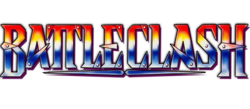
| |
| Developer(s) | Nintendo Intelligent Systems |
| Publisher(s) | Nintendo |
| Genre(s) | Light gun shooter |
| Console/platform of origin | SNES |
| First installment | Battle Clash (1992) |
| Latest installment | Metal Combat: Falcon's Revenge (1993) |
| Article on NintendoWiki | Battle Clash (universe) |
Battle Clash (スペースバズーカ, Space Bazooka) is a series of light gun shooters released for the Super NES that was compatible with the Super Scope. The series follows Mike Anderson, who has several battles with various opponents in giant mechs (which are called "Standing Tanks", or "ST" for short). The game's sequel, Metal Combat: Falcon's Revenge, was not released in Japan.
The ST Falcon, Mike's ST, appears as a spirit in Super Smash Bros. Ultimate.
Big Brain Academy[edit]
| Big Brain Academy (universe) | |
|---|---|
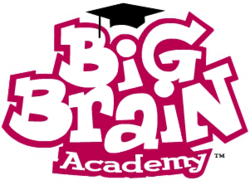
| |
| Developer(s) | Nintendo |
| Publisher(s) | Nintendo |
| Genre(s) | Puzzle |
| Console/platform of origin | DS |
| First installment | Big Brain Academy (2005) |
| Latest installment | Big Brain Academy: Brain vs. Brain (2021) |
| Article on NintendoWiki | Big Brain Academy (universe) |
Big Brain Academy (やわらかあたま塾, Big Brain Academy) is a series of puzzle educational games for the Nintendo DS and Wii where the player does a series of tests to measure their brain's mass, where the heavier the brain is, the smarter it is or the better its reaction time.
Two pieces of artwork of Dr. Lobe from both of the Big Brain Academy games appear as two stickers in Super Smash Bros. Brawl. A music track titled Title (Big Brain Academy) plays on the Distant Planet stage.
The Title (Big Brain Academy) track returns in Super Smash Bros. for Wii U, but now plays on the Miiverse stage.
Dr. Lobe returns as a spirit in Super Smash Bros. Ultimate. Title (Big Brain Academy) once again returns, now under the title Title Theme - Big Brain Academy and now playing on stages listed in the "Other" category and, as of update version 8.1.0, the "Super Smash Bros." category.
bit Generations[edit]
| bit Generations (universe) Art Style (universe) Digiluxe (universe) | |
|---|---|
| Developer(s) | Skip Ltd. Q-Games |
| Publisher(s) | Nintendo |
| Genre(s) | Puzzle |
| Console/platform of origin | Game Boy Advance |
| First installment | bit Generations Series One (2006) |
| Latest installment | Art Style: Rotozoa (2010) |
| Article on NintendoWiki | bit Generations (universe) Art Style (universe) Digiluxe (universe) |
bit Generations, known as Digiluxe in Brawl, is a series of 7 simple games released exclusively in Japan in 2006 for the Game Boy Advance. 4 of the games were later rereleased for the Nintendo DSiWare and WiiWare along with some brand new games under the name Art Style and were released outside of Japan in North America and PAL regions.
The logos for 5 out of the 7 games appear in Super Smash Bros. Brawl as stickers. The games include Orbiter, Chromatron, Boundish, Digidrive, and Rotohex.
BoxBoy![edit]
| BoxBoy! (universe) | |
|---|---|
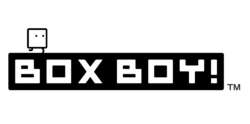
| |
| Developer(s) | HAL Laboratory |
| Publisher(s) | Nintendo |
| Genre(s) | Puzzle Platformer |
| Console/platform of origin | 3DS (eShop) |
| First installment | BoxBoy! (2015) |
| Latest installment | BoxBoy! + BoxGirl! (2019) |
| Article on NintendoWiki | BoxBoy! (universe) |
BoxBoy! (ハコボーイ!, Box Boy!) is a series of puzzle-platformer games developed by HAL Laboratory. The games involve solving various puzzles by generating boxes from the protagonist's body.
The game's protagonist, Qbby, appears as a spirit in Super Smash Bros. Ultimate. The spirit can also be unlocked by scanning the Qbby amiibo, which works with all versions of the game despite only releasing in Japan.
Calciobit[edit]
| Calciobit (universe) Nintendo Pocket Football Club (universe) | |
|---|---|

| |
| Developer(s) | Paritybit |
| Publisher(s) | Nintendo Game Addict |
| Genre(s) | Sports |
| Console/platform of origin | Game Boy Advance |
| First installment | Calciobit (2006) |
| Latest installment | Calciobit A (2017) |
| Article on NintendoWiki | Calciobit (universe) Nintendo Pocket Football Club (universe) |
Calciobit (カルチョビット, Calciobit) is a soccer management simulation game released exclusively in Japan for the Game Boy Advance in 2006. The game then received a sequel in 2012 for the 3DS called Pocket Soccer League Calciobit that later got released in Europe exclusively for the Nintendo 3DS eShop in 2014 as Nintendo Pocket Football Club. An installment for mobile phones, Calciobit A, was released for mobile devices in 2017, this time published by Game Addict.
A trophy depicting 2 Blue Team soccer players, 3 Red Team soccer players, and a referee appears in Super Smash Bros. for Nintendo 3DS, under the name "Athletes" in North America and "Football Players" in PAL regions.
A single soccer player (Under the name "Pocket Football Player") appears as a spirit in Super Smash Bros. Ultimate.
Captain Rainbow[edit]
| Captain Rainbow (universe) | |
|---|---|
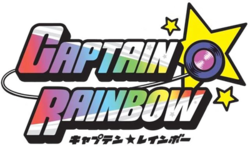
| |
| Developer(s) | Skip Ltd. |
| Publisher(s) | Nintendo |
| Genre(s) | Action-adventure |
| Console/platform of origin | Wii |
| First installment | Captain Rainbow (2008) |
| Latest installment | Captain Rainbow (2008) |
Captain Rainbow (キャプテン レインボー, Captain Rainbow) is an action-adventure game featuring lesser known Nintendo characters trying to find their wish in life with the help of the title hero.
The titular character and the obese version of Little Mac appear as trophies. A music track called Tomorrow's Passion appears in Super Smash Bros. for Wii U as a track for the Boxing Ring stage.
The titular character returns as a spirit in Super Smash Bros. Ultimate, as well as his real identity, Nick. Tomorrow's Passion returns, this time playing on stages listed in the "Other" category and, as of update version 8.1.0, the "Super Smash Bros." category.
Card Hero[edit]
| Card Hero (universe) | |
|---|---|

| |
| Developer(s) | Nintendo Intelligent Systems |
| Publisher(s) | Nintendo |
| Genre(s) | Role-playing |
| Console/platform of origin | Game Boy Color |
| First installment | Trade & Battle: Card Hero (2000) |
| Latest installment | Card Hero: Speed Battle Custom (2009) |
| Article on NintendoWiki | Card Hero (universe) |
Card Hero (カードヒーロー, Card Hero) is a series that began with a Japan-only card battle RPG released for the Game Boy Color that popularized a relatively obscure trading card game in Japan. Trading cards came packaged with the original game. A sequel was released for the Nintendo DS in 2007 titled Kousoku Card Battle: Card Hero. A DSiWare title known as Card Hero: Speed Battle was later released in 2009, but it only allowed the ability to battle and build decks. None of the games were released outside of Japan.
The shop manager of the series' card shop, Maruo Maruhige, appears as a trophy in Super Smash Bros. Melee.
Hiroshi, the main character of Trade & Battle: Card Hero, as well as Tameo and a Master card, appear as stickers in Super Smash Bros. Brawl.
Maruo Maruhige returns as a spirit in Super Smash Bros. Ultimate (this time under the name "Maruhige Shop Owner"), along with Satoru, the main protagonist of Kousoku Card Battle: Card Hero.
Chalien[edit]
| Chalien (universe) | |
|---|---|
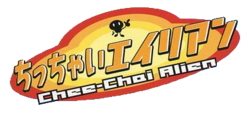
| |
| Developer(s) | Creatures, Inc. Zener Works |
| Publisher(s) | Creatures, Inc. Nintendo |
| Genre(s) | Puzzle Minigame |
| Console/platform of origin | Game Boy Color |
| First installment | Chee-Chai Alien (2001) |
| Latest installment | Spin Six (2009) |
| Article on NintendoWiki | Chalien (universe) |
Chalien (ちゃいリアン, Chalien), short for Chee-Chai Alien (ちっちゃいエイリアン, Tiny Alien), is a series of minigame puzzle games released for the Game Boy Color and Game Boy Advance by Creatures, Inc. featuring various alien-like creatures called "Chaliens". One of the games in the sequel would later release as a standalone DSiWare title called Spin Six, developed by Zener Works.
Li'l Blue, the mascot of the series, appears as a spirit in Super Smash Bros. Ultimate.
Chibi-Robo![edit]
| Chibi-Robo! (universe) | |
|---|---|
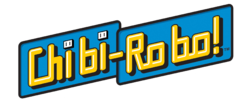
| |
| Developer(s) | Skip Ltd. Nintendo |
| Publisher(s) | Nintendo |
| Genre(s) | Various |
| Console/platform of origin | GameCube |
| First installment | Chibi-Robo! Plug Into Adventure! (2005) |
| Latest installment | Chibi-Robo! Zip Lash (2015) |
| Article on Chibi-Robo! Wiki | Chibi-Robo! (universe) |
Chibi-Robo! (ちびロボ!, Chibi-Robo!) is a series of various types of games involving a titular toy robot, Chibi-Robo, who is tasked with various missions, ranging from keeping a family happy to saving a park from danger to saving the world from an alien threat. After the company Skip went bankrupt, a successor was made by Tiny Wonder Studio in 2024, featuring most of its ex-employees, and titled koROBO.
The titular character (along with his motivator, Telly) appears as a trophy in Super Smash Bros. Brawl. Stickers from the series in Super Smash Bros. Brawl include Chibi-Robo, Chibi-Robo Running, Mr. Sanderson (referred to as "Papa"), and Telly with their artwork from the original Chibi-Robo! and Chibi-Robo and Free Ranger with their artwork from Chibi-Robo!: Park Patrol!.
Chibi-Robo returns as a shared trophy with Chibi-Tot from Chibi-Robo!: Photo Finder in Super Smash Bros. for Nintendo 3DS.
Chibi-Robo, his Super Chibi-Robo form, Telly (as he appears in Zip Lash), Drake Redcrest (also as he appears in Zip Lash), and a Chibi-Tot all appear as spirits in Super Smash Bros. Ultimate. Chibi-Robo also appears as a Mii Fighter costume for Mii Gunners.
Chōsōjū Mecha MG[edit]
| Chōsōjū Mecha MG (universe) | |
|---|---|
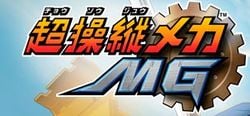
| |
| Developer(s) | Sandlot |
| Publisher(s) | Nintendo |
| Genre(s) | Action |
| Console/platform of origin | DS |
| First installment | Chōsōjū Mecha MG (2006) |
| Latest installment | Chōsōjū Mecha MG (2006) |
Chōsōjū Mecha MG (超操縦メカ MG, Super Maneuvering Mecha MG) is an action game featuring giant robots called Marionation Gears (MG for short) for the Nintendo DS released exclusively in Japan.
The Warrior Mech Gauss, HM Mech Rosa, and Musketeer Daltania appear as trophies in Super Smash Bros. Brawl. All 3 of the MGs along with the Ningyou Kouchuu Viigaru also appear as stickers. Additionally, a remix of Marionation Gear plays on Norfair.
The remix of Marionation Gear returns in Super Smash Bros. for Wii U on the same stage.
Warrior Mech Gauss returns as a spirit in Super Smash Bros. Ultimate. Marionation Gear once again returns, this time playing on stages listed in the "Other" category and, as of update version 8.1.0, the "Super Smash Bros." category.
Code Name: S.T.E.A.M.[edit]
| Code Name: S.T.E.A.M. (universe) | |
|---|---|
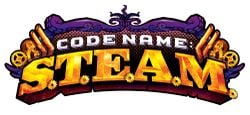
| |
| Developer(s) | Intelligent Systems |
| Publisher(s) | Nintendo |
| Genre(s) | Turn-based strategy |
| Console/platform of origin | 3DS |
| First installment | Code Name: S.T.E.A.M. (2015) |
| Latest installment | Code Name: S.T.E.A.M. (2015) |
Code Name: S.T.E.A.M. (Code Name: S.T.E.A.M. リンカーンVSエイリアン, Code Name: S.T.E.A.M. Lincoln VS Aliens) is a turn-based strategy game set in a comic book-inspired alternate steampunk history. The story features playable characters from across American literature and folklore fighting alongside President Abraham Lincoln against invading alien threats inspired by Lovecraftian horrors. The player can also summon certain Fire Emblem characters in the game by using compatible amiibo figures.
This title was the debut of Marth's current English voice actor, Yuri Lowenthal. It was also the first title since Melee to include a brand new voice track from Marth's Japanese voice actor, Hikaru Midorikawa. Both would reprise their role in Ultimate with new voice tracks.
The game's depiction of Henry Fleming from The Red Badge of Courage (who is also the main protagonist of the game) appears as a Spirit in Super Smash Bros. Ultimate. A new remix of Trouble Brewing II appears as a music track, playing on stages listed in the "Other" category and, as of update version 8.1.0, the "Super Smash Bros." category. Additionally, the tracks Code Name: F.E., Lords-A Chance Encounter, and Lords-Showdown, remixes of Fire Emblem music, are listed as Fire Emblem tracks in Ultimate, and thus they only play on the Fire Emblem stages.
Cubivore[edit]
| Cubivore (universe) | |
|---|---|

| |
| Developer(s) | Saru Brunei Intelligent Systems |
| Publisher(s) | Nintendo Atlus |
| Genre(s) | Action-adventure |
| Console/platform of origin | GameCube |
| First installment | Cubivore: Survival of the Fittest (2002) |
| Latest installment | Cubivore: Survival of the Fittest (2002) |
Cubivore: Survival of the Fittest (動物番長, Animal Leader) is a GameCube simulation video game where the player plays as a cube shaped animal, called a Cubivore, to eat other Cubivores to mutate and become stronger.
Super Smash Bros. Melee promoted Cubivore before its release with the inclusion of a trophy of a creature named Alpha, although said creature does not exist in the final game.
A pig, which is the first creature in the game the player starts with, appears as a spirit in Super Smash Bros. Ultimate.
Disaster: Day of Crisis[edit]
| Disaster: Day of Crisis (universe) | |
|---|---|
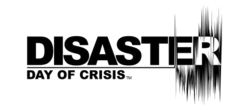
| |
| Developer(s) | Monolith Soft |
| Publisher(s) | Nintendo |
| Genre(s) | Action-adventure |
| Console/platform of origin | Wii |
| First installment | Disaster: Day of Crisis (2008) |
| Latest installment | Disaster: Day of Crisis (2008) |
Disaster: Day of Crisis (ディザスター デイ オブ クライシス, Disaster: Day of Crisis) is an action-adventure survival game in which the player must save several victims of various natural disasters, while also saving his late friend's sister from an organization called "SURGE".
Raymond Bryce, the main protagonist, appears as a spirit in Super Smash Bros. Ultimate.
Doshin the Giant[edit]
| Doshin the Giant (universe) | |
|---|---|
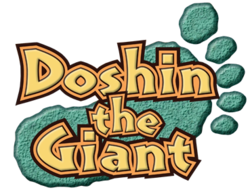
| |
| Developer(s) | Param Nintendo |
| Publisher(s) | Nintendo |
| Genre(s) | God game |
| Console/platform of origin | Nintendo 64 (64DD) |
| First installment | Doshin the Giant (64DD) (1999) |
| Latest installment | Doshin the Giant (GCN) (2002) |
Doshin the Giant (巨人のドシン, Doshin the Giant) is a god game for the 64DD (which later got an expansion, also for the 64DD, and a re-release for the GameCube in 2002 in both Japan and Europe) where the player controls a yellow giant named Doshin to help the inhabitants of Barudo, but he can also transform into his evil form, Jashin, to destroy everything in sight.
The two forms that the Giant can take, Love Giant (Doshin) and Hate Giant (Jashin) (with the former holding an islander in his hands), appear as trophies in Super Smash Bros. Melee.
English Training[edit]
| English Training (universe) | |
|---|---|

| |
| Developer(s) | Plato |
| Publisher(s) | Nintendo |
| Genre(s) | Education |
| Console/platform of origin | DS |
| First installment | English Training: Have Fun Improving Your Skills! (2006) |
| Latest installment | New English Training: Learn with Tempo – Advanced Edition (2009) |
English Training (トレーニング えいご, English Training) is a series of Nintendo DS educational games under the Touch! Generations brand released exclusively in Japan and non-English speaking countries in Europe which helps people comprehend English.
Dzuke-chan, the host of the Japanese versions, appears as a sticker in Super Smash Bros. Brawl.
Eternal Darkness[edit]
| Eternal Darkness (universe) | |
|---|---|
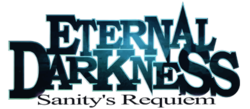
| |
| Developer(s) | Silicon Knights |
| Publisher(s) | Nintendo |
| Genre(s) | Action-adventure Psychological horror |
| Console/platform of origin | GameCube |
| First installment | Eternal Darkness: Sanity's Requiem (2002) |
| Latest installment | Eternal Darkness: Sanity's Requiem (2002) |
Eternal Darkness: Sanity's Requiem (エターナルダークネス 〜招かれた13人〜, Eternal Darkness: 13 Invited Guests) is a psychological horror game for the Nintendo GameCube where 12 characters from different time periods must stop the world from falling into darkness. The game is notable for introducing the concept of a Sanity Meter, which would decrease when spotted by enemies, allowing a number of frightening or disorienting effects to happen in-game. The game is also notable for being the first Nintendo-published game to receive an M (Mature) rating from the ESRB.
Alexandra Roivas, the main protagonist, appears as a spirit in Super Smash Bros. Ultimate.
Ever Oasis[edit]
| Ever Oasis (universe) | |
|---|---|

| |
| Developer(s) | Grezzo |
| Publisher(s) | Nintendo |
| Genre(s) | Action-adventure Role-playing |
| Console/platform of origin | 3DS |
| First installment | Ever Oasis (2017) |
| Latest installment | Ever Oasis (2017) |
Ever Oasis (Ever Oasis 精霊とタネビトの蜃気楼, Ever Oasis: Spirit Crescent and the Mirage of the Seed People) is an action role-playing game in which the player must build and grow the only remaining oasis in the world after their brother Nour's oasis got destroyed by an evil being named Chaos, all the while recruiting allies and residents.
Tethu (the male variant of the protagonist) and Esna both appear as spirits in Super Smash Bros. Ultimate. Two music tracks from the game, Dawn in the Desert and Struggle Against Chaos, appear, playing on stages listed in the "Other" category and, as of update version 8.1.0, the "Super Smash Bros." category.
Famicom Detective Club[edit]
| Famicom Detective Club (universe) | |
|---|---|
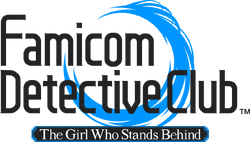
| |
| Developer(s) | Nintendo Tose MAGES. |
| Publisher(s) | Nintendo |
| Genre(s) | Adventure |
| Console/platform of origin | Famicom (Disk System) |
| First installment | Famicom Tantei Club: Kieta Koukeisha (1988) |
| Latest installment | Emio – The Smiling Man: Famicom Detective Club (2024) |
Famicom Detective Club (ファミコン探偵倶楽部, Famicom Detective Club) is a series of mystery adventure games released for the Famicom Disk System, Super Famicom, Satellaview, and Nintendo Switch. The original Famicom versions of the first two installments also got re-released on the Game Boy Advance as a part of the Famicom/NES Classics series. Remakes of the first two games were released for the Switch in 2021, bringing the series out of Japan for the first time. Following that, it would get its first new installment in 27 years with the release of Emio – The Smiling Man in 2024 (with it being the first new entry in 35 years to be called Famicom Detective Club).
Ayumi Tachibana appears as a trophy in Super Smash Bros. Melee.
The beginning portion of the title screen music from Ushiro ni Tatsu Shōjo (The Girl Who Stands Behind) appears in the Famicom Medley theme in Super Smash Bros. Brawl.
Ayumi Tachibana returns as a spirit in Super Smash Bros. Ultimate.
Ayumi Tachibana was considered as a fighter for Melee, but was scrapped "due to a lack of familiarity abroad".[1]
Famicom Grand Prix[edit]
| Famicom Grand Prix (universe) | |
|---|---|
| Developer(s) | Nintendo Hal Laboratory |
| Publisher(s) | Nintendo |
| Genre(s) | Racing |
| Console/platform of origin | Famicom (Disk System) |
| First installment | Famicom Grand Prix: F-1 Race (1987) |
| Latest installment | Famicom Grand Prix II: 3D Hot Rally (1988) |
Famicom Grand Prix (ファミコングランプリ, Famicom Grand Prix) is a series of racing games released for the Famicom Disk System in the late 1980s. While the first game was a top down racer, the second game was a rally game with the camera perspective behind the car. Both games included competition prizes in Japan when first released. You would have to win a specific race and submit your best time to Nintendo. The games star Mario and (in the second game only) Luigi. The second game is notable for its use of the Famicom 3D System, one of eight to do so, as well as being the first game to use artwork that differentiated Luigi from Mario.
Monster, one of the cars available in the second game, appears as a trophy in Super Smash Bros. Melee.
The Monster vehicle returns as a sticker in Super Smash Bros. Brawl. A remix of the title theme from the second game, titled Title (3D Hot Rally) appears in Super Smash Bros. Brawl in the My Music for Mario Circuit.
Title (3D Hot Rally) returns in Super Smash Bros. for Wii U on the same stage.
The Monster vehicle (Now labelled as "MONSTER") returns as a spirit in Super Smash Bros. Ultimate. Additionally, the artwork for the spirit features both Mario and Luigi, though the spirit is not categorized as a Mario series spirit. Title (3D Hot Rally) once again returns, now under the title Title Theme - 3D Hot Rally, and now playing on stages listed in the "Other" category and, as of update version 8.1.0, the "Super Smash Bros." category.
FlingSmash[edit]
| FlingSmash (universe) | |
|---|---|

| |
| Developer(s) | Artoon |
| Publisher(s) | Nintendo |
| Genre(s) | Action |
| Console/platform of origin | Wii |
| First installment | FlingSmash (2010) |
| Latest installment | FlingSmash (2010) |
FlingSmash (たたいて弾む スーパースマッシュボール・プラス, Striking Bounce: Super Smash Ball Plus) is an action game for the Wii that is only compatible with the Wii MotionPlus accessory and came bundled with the Wii Remote Plus. The game revolves around the player hitting the main character, Zip, like a paddleball towards obstacles and collectible items.
Zip, the main character, appears as a spirit in Super Smash Bros. Ultimate.
Fluidity[edit]
| Fluidity (universe) Hydroventure (universe) | |
|---|---|
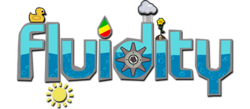
| |
| Developer(s) | Curve Studios |
| Publisher(s) | Nintendo |
| Genre(s) | Puzzle |
| Console/platform of origin | Wii (WiiWare) |
| First installment | Fluidity (2010) |
| Latest installment | Fluidity: Spin Cycle (2012) |
| Article on NintendoWiki | Fluidity (universe) Hydroventure (universe) |
Fluidity (ぐるっとスプラッシュ!, All Round Splash!) is a puzzle game developed by Curve Studios released in 2010 for the WiiWare where the player controls a pool of water by tilting the Wii Remote. In 2012, a sequel by the name of Fluidity: Spin Cycle was released for the Nintendo 3DS eShop, which uses the Nintendo 3DS's gyroscope. Unlike the original game, Spin Cycle was released in Japan.
Eddy from Fluidity: Spin Cycle appears as a trophy in Super Smash Bros. for Nintendo 3DS.
Eddy returns as a spirit in Super Smash Bros. Ultimate.
Fossil Fighters[edit]
| Fossil Fighters (universe) | |
|---|---|
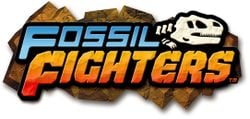
| |
| Developer(s) | Nintendo Red Entertainment Spike Chunsoft |
| Publisher(s) | Nintendo |
| Genre(s) | Role-playing |
| Console/platform of origin | DS |
| First installment | Fossil Fighters (2008) |
| Latest installment | Fossil Fighters: Frontier (2014) |
Fossil Fighters (カセキホリダー, Fossil Diggers) is a series of action RPG games for the DS and 3DS where players unearth and reanimate dinosaurs to fight in tournaments.
A shared trophy of Jura and Tria, the central characters in Fossil Fighters: Frontier (along with Nibbles in the same trophy), appears in Super Smash Bros. for Nintendo 3DS.
Nibbles returns as a solo spirit in Super Smash Bros. Ultimate, in addition to the T-Rex Vivosaur as it appears in the first game. The music track Battle Start - Fossil Fighters: Frontier appears, playing on stages listed in the "Other" category and, as of update version 8.1.0, the "Super Smash Bros." category.
Freakyforms[edit]
| Freakyforms (universe) | |
|---|---|

| |
| Developer(s) | Asobism |
| Publisher(s) | Nintendo |
| Genre(s) | Simulation |
| Console/platform of origin | 3DS (eShop) |
| First installment | Freakyforms: Your Creations, Alive! (2011) |
| Latest installment | Freakyforms Deluxe: Your Creations, Alive! (2012) |
Freakyforms (クリエイトーイ, Creatoy) is a unique series released for the Nintendo 3DS eShop and retail Nintendo 3DS (North America and PAL regions only) about creating and customizing a planet of creatures called Formees, which are created by putting together "forms" of different shapes and sizes.
King Roy, the damsel-in-distress of Freakyforms Deluxe's dungeons, appears as a trophy in Super Smash Bros. for Nintendo 3DS. A remix called Freakyforms: Your Creations, Alive! Medley appears on the downloadable Miiverse stage in Super Smash Bros. for Wii U.
Freakyforms: Your Creations, Alive! Medley returns in Super Smash Bros. Ultimate, this time playing on stages listed in the "Other" category and, as of update version 8.1.0, the "Super Smash Bros." category.
GiFTPiA[edit]
| GiFTPiA (universe) | |
|---|---|
| Developer(s) | Skip Ltd. |
| Publisher(s) | Nintendo |
| Genre(s) | Adventure Social simulation |
| Console/platform of origin | GameCube |
| First installment | GiFTPiA (2003) |
| Latest installment | GiFTPiA (2003) |
GiFTPiA (ギフトピア, GiFTPiA) is an adventure-social simulation game for the Nintendo GameCube in which the main protagonist and resident of Nanashi Island, Pockle, is arrested for missing his coming-of-age ceremony and is fined five million "Mane" (the game's main currency). Thus, he must pay off his debt and face heavy restrictions, all the while interacting with and helping out other people living on the island.
Mappo, the robot police chief, appears as a spirit in Super Smash Bros. Ultimate.
Hajimari no Mori[edit]
| Hajimari no Mori (universe) | |
|---|---|

| |
| Developer(s) | Pax Softnica |
| Publisher(s) | Nintendo |
| Genre(s) | Adventure |
| Console/platform of origin | Super Famicom (Nintendo Power) |
| First installment | Famicom Bunko: Hajimari no Mori (1999) |
| Latest installment | Famicom Bunko: Hajimari no Mori (1999) |
| Article on NintendoWiki | Hajimari no Mori (universe) |
Famicom Bunko: Hajimari no Mori (ファミコン文庫 はじまりの森, Famicom Storybook: Origin of the Forest) is an adventure game which was only released in Japan for the Super Famicom via the Nintendo Power download service. The plot follows a young boy who travels to the countryside to live with his grandfather for a time. The boy then meets a young girl named Komurasaki after he arrives and tries to find her again as the story continues.
Komurasaki, referred to as Girl from Hajimari no Mori, appears as a spirit in Super Smash Bros. Ultimate.
HarmoKnight[edit]
| HarmoKnight (universe) | |
|---|---|
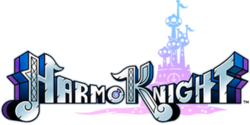
| |
| Developer(s) | Game Freak |
| Publisher(s) | Nintendo |
| Genre(s) | Rhythm |
| Console/platform of origin | 3DS (eShop) |
| First installment | HarmoKnight (2012) |
| Latest installment | HarmoKnight (2012) |
HarmoKnight (リズムハンター ハーモナイト, Rhythm Hunter: HarmoKnight) is a rhythm game released for the Nintendo 3DS eShop developed by Game Freak. The game stars a young boy named Tempo who is tasked with saving the world of Melodia from a race of malevolent creatures known as Noizoids by whacking them away with his magical staff. The game also includes five bonus stages featuring characters and music from the Pokémon series.
Tempo appears as a trophy in Super Smash Bros. for Nintendo 3DS and as a spirit in Super Smash Bros. Ultimate.
Hogan's Alley[edit]
| Hogan's Alley (universe) | |
|---|---|

| |
| Developer(s) | Nintendo |
| Publisher(s) | Nintendo |
| Genre(s) | Light gun shooter |
| Console/platform of origin | NES |
| First installment | Hogan's Alley (1984) |
| Latest installment | VS. Hogan's Alley (1985) |
Hogan's Alley (ホーガンズアレイ, Hogan's Alley) is an NES game compatible with the NES Zapper that involves the player shooting cardboard cut-outs of various gangsters, while avoiding to shoot cut-outs of ladies, policemen, and professors.
In Super Smash Bros. 4, Duck Hunt's neutral special move, Trick Shot, involves the dog kicking a can from the minigame in Hogan's Alley of the same name. The gangster cut-outs also appear as a part of Duck Hunt's Final Smash, NES Zapper Posse.
In Super Smash Bros. Ultimate, Duck Hunt retains the Trick Shot move and the gangster cut-outs reprise their roles. Additionally, cardboard cut-outs of a gangster, lady, and policeman share a Spirit.
Hotel Dusk[edit]
| Hotel Dusk (universe) | |
|---|---|

| |
| Developer(s) | Cing |
| Publisher(s) | Nintendo |
| Genre(s) | Visual novel |
| Console/platform of origin | DS |
| First installment | Hotel Dusk: Room 215 (2007) |
| Latest installment | Last Window: The Secret of Cape West (2010) |
Hotel Dusk (ウィッシュルーム, Wish Room) is a visual novel for the Nintendo DS that involves a detective named Kyle Hyde having to unravel the lore behind a mysterious hotel room. In 2010, the game got a sequel also for the Nintendo DS released only in Japan and Europe called Last Window: The Secret of Cape West, which was the last game Cing made before the company went bankrupt.
Kyle Hyde has a trophy in Super Smash Bros. Brawl that is noteworthy for being the only animated trophy in the entire Super Smash Bros. series. Kyle Hyde, Dunning Smith, and Mila all appear as stickers.
Kyle Hyde returns as a spirit in Super Smash Bros. Ultimate.
Ice Hockey[edit]
| Ice Hockey (universe) | |
|---|---|
| Developer(s) | Nintendo |
| Publisher(s) | Nintendo |
| Genre(s) | Sports |
| Console/platform of origin | NES (Famicom Disk System) |
| First installment | Ice Hockey (1988) |
| Latest installment | Ice Hockey (1988) |
Ice Hockey (アイスホッケー, Ice Hockey) is a hockey game released for the Famicom Disk System in Japan and the NES in North America and the PAL regions.
The short hockey player (as he appears in the Famicom Disk System artwork), mistakenly referred to as "Fat Hockey Player", appears as a sticker in Super Smash Bros. Brawl.
The short hockey player returns alongside the fat and skinny hockey players as a spirit in Super Smash Bros. Ultimate (with all three using their art from the Disk System cover).
The fat hockey player was singled out by Nintendo Treehouse's vice president of player & product experience, Bill Trinen, as a character that would never appear as playable in Smash, even if he were to become heavily requested by fans.[2].
Kiki Trick[edit]
| Kiki Trick (universe) | |
|---|---|

| |
| Developer(s) | Nintendo |
| Publisher(s) | Nintendo |
| Genre(s) | Minigame |
| Console/platform of origin | Wii |
| First installment | Kiki Trick (2012) |
| Latest installment | Kiki Trick (2012) |
Kiki Trick (キキトリック, Kiki Trick) is an audio-based game in which the player must listen to a sentence with garbled speech, and figure out a word that would complete the sentence.
Noise, the host of the game, appears as a spirit in Super Smash Bros. Ultimate.
Kurikin Nano Island Story[edit]
| Kurikin Nano Island Story (universe) | |
|---|---|
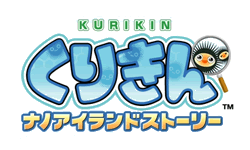
| |
| Developer(s) | MediaKite |
| Publisher(s) | Nintendo |
| Genre(s) | Role-playing |
| Console/platform of origin | DS |
| First installment | Kurikin Nano Island Story (2007) |
| Latest installment | Kurikin Nano Island Story (2007) |
Kurikin Nano Island Story (くりきん ナノアイランドストーリー, Kurikin Nano Island Story) is a role-playing game for the Nintendo DS in which the player, a student attending a school called "Nano Academy", trains several types of Bacteria. There are around 100 species of them.
A Kurikin bacteria appears as a spirit in Super Smash Bros. Ultimate.
The Last Story[edit]
| The Last Story (universe) | |
|---|---|
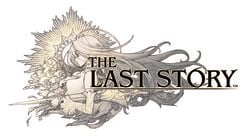
| |
| Developer(s) | Mistwalker AQ Interactive |
| Publisher(s) | Nintendo Xseed Games |
| Genre(s) | Action role-playing |
| Console/platform of origin | Wii |
| First installment | The Last Story (2011) |
| Latest installment | The Last Story (2011) |
The Last Story (ラストストーリー, Last Story) is a Wii RPG directed by Hironobu Sakaguchi, the original creator of Final Fantasy. Taking place upon the island fortress of Lazulis, in a world that is slowly being drained of life by an unknown force. The story focuses on a group of mercenaries looking for work on Lazulis; one of their number, Zael, dreams of becoming a knight. After receiving the mystical "Mark of the Outsider", Zael becomes involved with a noblewoman named Calista in an ongoing war between humans and the beast-like Gorak. During gameplay, the player controls Zael as he and the mercenary group to which he belongs undertake missions on Lazulis. Zael can command the rest of the mercenary squad during missions, and fights in battles that involve action, tactical and stealth elements. Multiple online multiplayer modes were also present.
The main characters Zael and Calista both appear as trophies in Super Smash Bros. for Wii U.
Zael and Calista both return as spirits in Super Smash Bros. Ultimate.
Looksley's Line Up[edit]
| Looksley's Line Up (universe) Tales in a Box: Hidden shapes in perspective! (universe) | |
|---|---|
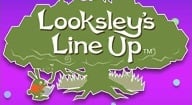
| |
| Developer(s) | Good-Feel |
| Publisher(s) | Nintendo |
| Genre(s) | Hidden Object |
| Console/platform of origin | DSi (DSiWare) |
| First installment | Looksley's Line Up (2010) |
| Latest installment | Looksley's Line Up (2010) |
Looksley's Line Up (立体かくし絵 アッタコレダ, Hidden 3D Image: There It Is!) is a hidden object game developed by Good-Feel released for the Nintendo DSiWare service. The player must tilt their Nintendo DSi in certain ways to find hidden letters and objects; the game uses the DSi's camera to determine the angle at which it is being held.
The titular character Looksley appears as a spirit in Super Smash Bros. Ultimate.
Mach Rider[edit]
| Mach Rider (universe) | |
|---|---|

| |
| Developer(s) | Nintendo |
| Publisher(s) | Nintendo |
| Genre(s) | Driving Action |
| Console/platform of origin | NES |
| First installment | Mach Rider (1985) |
| Latest installment | Vs. Mach Rider (1985) |
Mach Rider (マッハライダー, Mach Rider) is a driving game that was one of the launch titles for the original NES. Earlier, Nintendo released Mach Rider as a race car toy in 1972.
The titular character, Mach Rider, appears in as a trophy in Super Smash Bros. Melee. A remix of several music tracks from the game, simply called Mach Rider, can be played on the Big Blue stage.
The titular character returns as a sticker in Super Smash Bros. Brawl. The Mach Rider track returns, this time under the title Mach Rider (Melee) and playing on Port Town Aero Dive.
The Mach Rider track once again returns in Super Smash Bros. for Wii U, now with its title restored to simply Mach Rider and playing on the Wrecking Crew stage.
The titular character returns as a spirit in Super Smash Bros. Ultimate. Mach Rider once again returns, this time playing on stages listed in the "Other" category and, as of update version 8.1.0, the "Super Smash Bros." category.
In a questionnaire posted on the original Super Smash Bros. website, Sakurai stated he wanted Mach Rider in a future Smash Bros. game because he thought he had the "best name".[3]
Magical Starsign[edit]
| Magical Starsign (universe) | |
|---|---|

| |
| Developer(s) | Brownie Brown |
| Publisher(s) | Nintendo |
| Genre(s) | Role-playing |
| Console/platform of origin | Game Boy Advance |
| First installment | Magical Vacation (2001) |
| Latest installment | Magical Starsign (2006) |
| Article on Kovopedia | Magical Starsign (universe) |
Magical Starsign (マジカルバケーション, Magical Vacation) is a duology of fantasy RPGs for Game Boy Advance and the DS, developed by Brownie Brown, that centers around various students at the magic school Will-o'-Wisp Academy who each control a different element.
Mokka, a party member in both games, as well as a Putty and Pyrite, appear as trophies in Super Smash Bros. Brawl. The series is represented with several stickers that take artwork from both games, with Magical Vacation being represented by its male and female protagonists (named Boy and Girl respectively) and Kirsh, and Magical Starsign being represented by its male protagonist (named Boy), Mokka, Putty, HP Pot, and Sparrow.
The protagonists of Magical Vacation (as a shared spirit), Putty, and Mokka, return as spirits in Super Smash Bros. Ultimate.
Make 10: A Journey of Numbers[edit]
| Make 10: A Journey of Numbers (universe) | |
|---|---|

| |
| Developer(s) | Muu Muu |
| Publisher(s) | Nintendo |
| Genre(s) | Puzzle Educational |
| Console/platform of origin | DS |
| First installment | Make 10: A Journey of Numbers (2007) |
| Latest installment | Make 10: A Journey of Numbers (2007) |
Make 10: A Journey of Numbers (タシテン たして10にする物語, Tashiten: A Journey to Make 10) is a mathematics puzzle game published by Nintendo in 2007.
Num Diddly, the player's guide from this game, appears as a spirit in Super Smash Bros. Ultimate.
Marvelous[edit]
| Marvelous (universe) | |
|---|---|
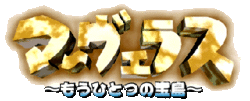
| |
| Developer(s) | Nintendo |
| Publisher(s) | Nintendo |
| Genre(s) | Action-adventure |
| Console/platform of origin | Super Famicom (Satellaview) |
| First installment | BS Marvelous: Time Athletics (1996) |
| Latest installment | BS Marvelous: Camp Arnold (1996) |
| Article on NintendoWiki | Marvelous (universe) |
Marvelous (マーヴェラス, Marvelous) is a series of action-adventure games for the Super Famicom that got its start as a 4-part download-exclusive game for the Satellaview. The series would later get a physical cartridge game titled "Marvelous: Mouhitotsu no Takarajima", which is in a similar vein to The Legend of Zelda: A Link to the Past and is notable for being the first game to be directed by Eiji Aonuma. In the game, three boys explore an island and solve puzzles in hopes of finding the buried treasure of a legendary pirate. One of the Satellaview games, BS Marvelous Camp Arnold, was later reworked into Navi Trackers, a minigame exclusive to the Japanese and Korean versions of The Legend of Zelda: Four Swords Adventures.
The three main protagonists, Dion, Max, and Jack, appear together as a shared spirit in Super Smash Bros. Ultimate.
Mole Mania[edit]
| Mole Mania (universe) | |
|---|---|
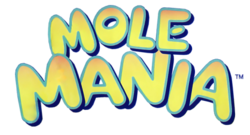
| |
| Developer(s) | Nintendo Pax Softnica |
| Publisher(s) | Nintendo |
| Genre(s) | Puzzle |
| Console/platform of origin | Game Boy |
| First installment | Mole Mania (1996) |
| Latest installment | Mole Mania (1996) |
Mole Mania (モグラ〜ニャ, Mogurānya) is a top-down puzzle game for the Game Boy in which a mole wearing glasses named Muddy Mole must save his kidnapped family, a wife and 7 children, from a cabbage farmer named Jinbe by solving puzzles involving pushing or throwing black balls into an exit, as well as fighting puzzle-based boss fights.
Muddy Mole appears as a spirit in Super Smash Bros. Ultimate.
Napoleon[edit]
| Napoleon (universe) L'Aigle de Guerre (universe) | |
|---|---|
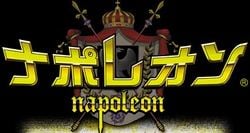
| |
| Developer(s) | Genki |
| Publisher(s) | Nintendo |
| Genre(s) | Real-time strategy |
| Console/platform of origin | Game Boy Advance |
| First installment | Napoleon (2001) |
| Latest installment | Napoleon (2001) |
Napoleon (ナポレオン, Napoleon), released in France under the title L'Aigle de Guerre (The Eagle of War), is a real-time strategy game released on the Game Boy Advance in which the player controls Napoleon Bonaparte and must lead the French revolutionary army to battle against the British, managing the troops and giving orders as the battles unfold.
Alessandro Inzaghi, Napoleon's old friend and first commander, appears as a spirit in Super Smash Bros. Ultimate.
NES Remix[edit]
| NES Remix (universe) | |
|---|---|

| |
| Developer(s) | Nintendo indieszero |
| Publisher(s) | Nintendo |
| Genre(s) | Various, retro |
| Console/platform of origin | Wii U (eShop) |
| First installment | NES Remix (2013) |
| Latest installment | Ultimate NES Remix (2014) |
NES Remix (ファミコンリミックス, Famicom Remix) is a game series that challenges the player to complete a variety of short tasks within classic NES titles. NES Remix was released on the Wii U eShop in 2013 and received a sequel the following year. Both games were then released on one disc as a full retail Wii U game titled NES Remix Pack. A third game titled Ultimate NES Remix was also released for the Nintendo 3DS.
The music track Title Theme (NES Remix 2) is included as a track that can play on the Duck Hunt stage in Super Smash Bros. for Wii U.
Title Theme (NES Remix 2), now called Title Theme - NES Remix 2, returns in Super Smash Bros. Ultimate, this time playing on stages listed in the "Other" category and, as of update version 8.1.0, the "Super Smash Bros." category.
Prior to post game additions, NES Remix was the newest universe represented in Super Smash Bros. for Wii U (as well as the newest universe represented in Super Smash Bros. 4 as a whole), with the first game releasing eleven months before the release of Super Smash Bros. for Wii U.
Nintendo Labo[edit]
| Nintendo Labo (universe) | |
|---|---|

| |
| Developer(s) | Nintendo |
| Publisher(s) | Nintendo |
| Genre(s) | Interactive Toy |
| Console/platform of origin | Switch |
| First installment | Nintendo Labo Variety Kit, Robot Kit (2018) |
| Latest installment | Nintendo Labo VR Kit (2019) |
Nintendo Labo (ニンテンドーラボ, Nintendo Labo) is a series of interactive creation kits where players can construct toys and tools out of cardboard and other materials that can interact with the game software. All kits come with building instructions for specific games as well as a DIY mode called the Toy-Con Garage that allows players to create new games and experiences. Certain kits are also available as alternative control methods for Nintendo Switch games.
The constructible outfit included in the Nintendo Labo Robot Kit appears as a costume for the Mii Brawler in Super Smash Bros. Ultimate. Additionally, spirits of the Toy-Con Robot, the Toy-Con Car, the Toy-Con VR Goggles and the three mascot characters Professor Riggs, Plaise, and Lerna all appear as part of the "Nintendo Labo: Smash Kit" Spirit Board event.
Compatibility with the VR Goggles was added in version 3.1.0 of Ultimate.
Nintendoji[edit]
| Nintendoji (universe) | |
|---|---|
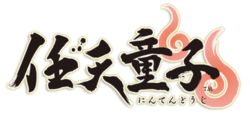
| |
| Developer(s) | Grounding, inc. |
| Publisher(s) | Nintendo |
| Genre(s) | Dungeon crawler |
| Console/platform of origin | 3DS (Released as a DSiWare title on the eShop) |
| First installment | Nintendoji (2013) |
| Latest installment | Nintendoji (2013) |
Nintendoji (任天童子, Nintendouji) is a Japan-only dungeon crawler starring the titular character released in 2013 for the Nintendo 3DS eShop (albeit as a DSiWare game) exclusive to Gold and Platinum Club Nintendo members; it was re-released in 2015 as one of the final set of Club Nintendo rewards in Japan.
The titular character appears as a trophy in Super Smash Bros. for Nintendo 3DS.
The titular character returns as a spirit in Super Smash Bros. Ultimate, this time under the name "Kageshina Kurabe".
Number Battle[edit]
| Number Battle (universe) Sujin Taisen: Number Battles (universe) | |
|---|---|

| |
| Developer(s) | Mitchell |
| Publisher(s) | Nintendo |
| Genre(s) | Puzzle Strategy |
| Console/platform of origin | DS |
| First installment | Sujin Taisen (2007) |
| Latest installment | Number Battle (2009) |
Number Battle (数陣タイセン, Number Battle) is a puzzle-strategy game in which the player must place tiles with numbers that range from 1-5 on the board so that paths join and the numbers can create "number sequences". The game was first released as a physical DS game in Japan in 2007, and later a DSiWare game in 2009, in which the latter received a European release in the same year and a North American release in 2010.
Hsien appears as a spirit in Super Smash Bros. Ultimate.
Ouendan[edit]
| Ouendan (universe) Elite Beat Agents (universe) | |
|---|---|
| Developer(s) | iNiS |
| Publisher(s) | Nintendo |
| Genre(s) | Music |
| Console/platform of origin | DS |
| First installment | Osu! Tatakae! Ouendan (2005) |
| Latest installment | Moeru! Nekketsu Rhythm Damashii: Osu! Tatakae! Ouendan 2 (2007) |
| Article on NintendoWiki | Ouendan (universe) Elite Beat Agents (universe) |
Ouendan (応援団, Cheer Squad), reworked as Elite Beat Agents for the only game of the series released in the West, is a series of music-based rhythm action games developed by iNiS for the Nintendo DS. The games revolve around Japanese cheerleaders/agents in black singing and dancing to famous songs by several artists to assist people in need.
Both Ryuta Ippongi and Hayato Saionji from Ouendan appear in Super Smash Bros. Brawl as a shared trophy while Agent J, Agent Morris, and Agent Derek from Elite Beat Agents appear in the same game as a shared trophy as well. All of the above characters also appear as stickers in Brawl, as do the characters Hajime Tanaka, Kai Doumeki, and Sayaka Amemiya from Ouendan, and Commander Kahn from Elite Beat Agents.
Ryuta Ippongi and Sayaka Amemiya from Ouendan both return as spirits in Super Smash Bros. Ultimate, this time sharing a spot with back-up dancers Atsushi Saitou & Ittetsu Suzuki for Ryuta and Aoi Kanda & Anna Lyndhurst for Sayaka, respectively. Agents J, Morris, and Derek from Elite Beat Agents also return as a shared spirit, alongside newcomers to the Smash series, Starr, Foxx, and Missy of the Elite Beat Divas as a shared spirit.
Elite Beat Agents is the only Western-exclusive universe to receive representation in Smash.
Pandora's Tower[edit]
| Pandora's Tower (universe) | |
|---|---|
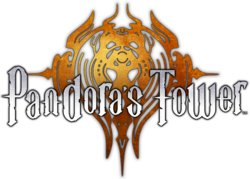
| |
| Developer(s) | Ganbarion Nintendo |
| Publisher(s) | Nintendo Xseed Games |
| Genre(s) | Action role-playing |
| Console/platform of origin | Wii |
| First installment | Pandora's Tower (2011) |
| Latest installment | Pandora's Tower (2011) |
Pandora's Tower (パンドラの塔 君のもとへ帰るまで, Pandora's Tower: Until I Return to Your Side) is an action RPG for the Wii about a 22-year-old boy named Aeron who has to save an 18-year-old girl named Elena from transforming into a hideous beast by feeding her the flesh of monsters in 13 towers.
Both Aeron and Elena appear as a shared trophy in Super Smash Bros. for Wii U.
Aeron and Elena both return as separate spirits in Super Smash Bros. Ultimate.
Project Hacker[edit]
| Project Hacker (universe) | |
|---|---|

| |
| Developer(s) | Red Entertainment |
| Publisher(s) | Nintendo |
| Genre(s) | Point and click Adventure |
| Console/platform of origin | DS |
| First installment | Project Hacker: Kakusei (2006) |
| Latest installment | Project Hacker: Kakusei (2006) |
Project Hacker: Kakusei (プロジェクトハッカー 覚醒, Project Hacker: Awakening) is a point-and-click-adventure game for the Nintendo DS in which the player takes control of a hacker, in which he and his detective partner, Rina, are employed by the internet crime-fighting GIS.
Satoru Amatsubo, the main protagonist, appears as a spirit in Super Smash Bros. Ultimate.
Pushmo[edit]
| Pushmo (universe) Pullblox (universe) | |
|---|---|
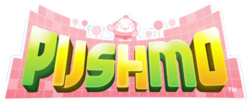
| |
| Developer(s) | Intelligent Systems |
| Publisher(s) | Nintendo |
| Genre(s) | Puzzle Platformer |
| Console/platform of origin | 3DS (eShop) |
| First installment | Pushmo (2011) |
| Latest installment | Stretchmo (2015) |
| Article on NintendoWiki | Pushmo (universe) Pullblox (universe) |
Pushmo (引ク押ス, Pull Push) is a platformer puzzle franchise for the 3DS eShop and Wii U eShop where the main character, Mallo, has to move blocks to create steps to rescue children or birds trapped in various structures, sometimes designed to resemble popular Nintendo characters.
Mallo appears as a trophy in Super Smash Bros. for Nintendo 3DS.
Mallo returns as a spirit in Super Smash Bros. Ultimate. A music track from Stretchmo, Welcome Center, appears, playing on stages listed in the "Other" category and, as of update version 8.1.0, the "Super Smash Bros." category.
Ring Fit Adventure[edit]
| Ring Fit Adventure (universe) | |
|---|---|
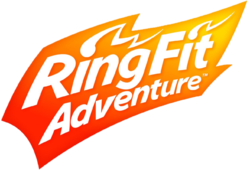
| |
| Developer(s) | Nintendo |
| Publisher(s) | Nintendo |
| Genre(s) | Role-playing Exergame |
| Console/platform of origin | Switch |
| First installment | Ring Fit Adventure (2019) |
| Latest installment | Ring Fit Adventure (2019) |
Ring Fit Adventure (リングフィット アドベンチャー, Ring Fit Adventure) is a role-playing exergame released on the Nintendo Switch in 2019. Using the Ring-Con and Leg Strap special accessories, the player does various fitness based activities to fight monsters and take down the body-building dragon Dragaux.
On March 13th, 2020, both genders of the Ring Fit Trainee (the playable character), the character Ring, and Dragaux appeared as spirits in the spirit board event Spirits Fit for a Fight in Ultimate. Notably, the Ring Fit Trainee is officially nameless in Ring Fit Adventure (as the player has the option to name them), making Ultimate the first game to give them a proper name.
Rusty's Real Deal Baseball[edit]
| Rusty's Real Deal Baseball (universe) | |
|---|---|

| |
| Developer(s) | Nintendo |
| Publisher(s) | Nintendo |
| Genre(s) | Sports |
| Console/platform of origin | 3DS (eShop) |
| First installment | Rusty's Real Deal Baseball (2013) |
| Latest installment | Rusty's Real Deal Baseball (2013) |
Rusty's Real Deal Baseball (だるめしスポーツ店, Darumeshi Sports Shop) is a collection of 10 baseball minigames released for the Nintendo 3DS eShop. The main gimmick is that the game is free to download, but each minigame must be purchased individually. However, the player is incentivized to haggle with Rusty to get a lower price for the game, to the point where paying full price is relatively difficult. An interesting fact is that the game's titual character got a different name and design between the Japanese and American versions.
Like Ouendan and the Elite Beat Agents in Super Smash Bros. Brawl, both Darumeshi Sports's Inuji Darumeshi and Rusty's Real Deal Baseball's Rusty Slugger appear as trophies in Super Smash Bros. for Nintendo 3DS, no matter the region.
Both Inuji Darumeshi and Rusty Slugger return as spirits in Super Smash Bros. Ultimate.
Prior to post game additions, Rusty's Real Deal Baseball was the newest universe represented in Super Smash Bros. for Nintendo 3DS, releasing one year and an additional month before the release of Super Smash Bros. for Nintendo 3DS.
Sakura Samurai[edit]
| Sakura Samurai (universe) Hana Samurai (universe) | |
|---|---|
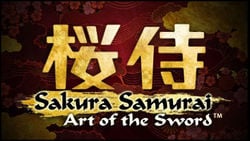
| |
| Developer(s) | Grounding, Inc. |
| Publisher(s) | Nintendo |
| Genre(s) | Action-adventure |
| Console/platform of origin | 3DS (eShop) |
| First installment | Sakura Samurai: Art of the Sword (2011) |
| Latest installment | Sakura Samurai: Art of the Sword (2011) |
Sakura Samurai: Art of the Sword (ひらり 桜侍, Hirari Sakura Samurai) is an action-adventure game on the Nintendo 3DS eShop set in feudal Japan where a samurai, who was trained by a kappa, tries to save the princess named "Cherry Blossom" from an evil warlord.
Sakura Samurai, the protagonist, is represented as a trophy in Super Smash Bros. for Nintendo 3DS. A remix of a music track from the game, Boss 1 (Sakura Samurai: Art of the Sword), is available on the Luigi's Mansion stage in Super Smash Bros. for Wii U.
Sakura Samurai returns as a spirit in Super Smash Bros. Ultimate. Boss 1 - Sakura Samurai: Art of the Sword returns, this time playing on stages listed in the "Other" category and, as of update version 8.1.0, the "Super Smash Bros." category.
Sennen Kazoku[edit]
| Sennen Kazoku (universe) | |
|---|---|
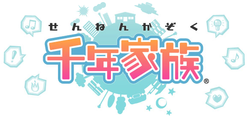
| |
| Developer(s) | indieszero |
| Publisher(s) | Nintendo |
| Genre(s) | Life simulation |
| Console/platform of origin | Game Boy Advance |
| First installment | Sennen Kazoku (2005) |
| Latest installment | Sennen Kazoku (2005) |
Sennen Kazoku (千年家族, Thousand Year Family) is a life-simulation game for the Game Boy Advance released exclusively in Japan starring an angel named Cupid who has been sent by God (Kamisama) to protect a family from danger.
Cupid (referred to as "Cupit"), Kamisama, Akuma, and an Aijou Boom no Ya appear as stickers in Super Smash Bros. Brawl.
Cupid returns as a spirit in Super Smash Bros. Ultimate.
[edit]
| Shaberu! DS Oryōri Navi (universe) Personal Trainer: Cooking (universe) Cooking Guide: Can't Decide What to Eat? (universe) | |
|---|---|

| |
| Developer(s) | indieszero Nintendo Koei |
| Publisher(s) | Nintendo Koei |
| Genre(s) | Edutainment |
| Console/platform of origin | DS |
| First installment | Shaberu! DS Oryōri Navi (2006) |
| Latest installment | America's Test Kitchen: Let's Get Cooking (2010) |
Shaberu! DS Oryōri Navi (しゃべる!DSお料理ナビ, It Talks! DS Cooking Navigator) is a digital cookbook for the DS, the sequel to which was released outside of Japan as Personal Trainer: Cooking in North America (under the Personal Trainer series) and Cooking Guide: Can't Decide What to Eat? in Europe.
The Chef appears as a collectible sticker in Super Smash Bros. Brawl. A remix of the title theme from the game appears in Super Smash Bros. Brawl in the My Music for PictoChat under the partially-translated title Shaberu! DS Cooking Navi.
The Chef returns as a spirit in Super Smash Bros. Ultimate. The Shaberu! DS Cooking Navi track returns, now under the title Personal Trainer: Cooking and now playing on stages listed in the "Other" category and, as of update version 8.1.0, the "Super Smash Bros." category.
Shin Onigashima[edit]
| Shin Onigashima (universe) | |
|---|---|

| |
| Developer(s) | Nintendo Pax Softnica |
| Publisher(s) | Nintendo |
| Genre(s) | Adventure |
| Console/platform of origin | Famicom (Disk System) |
| First installment | Shin Onigashima (1987) |
| Latest installment | Heisei: Shin Onigashima (1997) |
Shin Onigashima (新・鬼ヶ島, New Island of Oni) is an adventure game that borrows elements from traditional Japanese fairytales, such as Momotarō and Princess Kaguya. It is part of the Famicom Fairytales series, also consisting of Yūyūki.
The main characters, Donbe & Hikari, appear as a shared trophy in Super Smash Bros. Melee.
Donbe returns as a solo sticker in Super Smash Bros. Brawl. A remix of two music tracks from the game, titled Shin Onigashima, appears in the My Music for Summit in Super Smash Bros. Brawl.
The Shin Onigashima track returns in Super Smash Bros. for Wii U, now called Shin Onigashima Medley and being moved to the Boxing Ring stage.
Both Donbe & Hikari return as a shared spirit in Super Smash Bros. Ultimate. In addition, there is also a shared spirit of Donbe & Hikari as they appear in the second disk of the game, Shin Onigashima Kouhen. The music track Shin Onigashima Medley once again returns; this time playing on stages listed in the "Other" category and, as of update version 8.1.0, the "Super Smash Bros." category.
Slide Adventure MAGKID[edit]
| Slide Adventure MAGKID (universe) | |
|---|---|
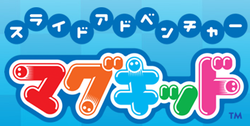
| |
| Developer(s) | Nintendo Agenda |
| Publisher(s) | Nintendo |
| Genre(s) | Action |
| Console/platform of origin | DS |
| First installment | Slide Adventure MAGKID (2007) |
| Latest installment | Slide Adventure MAGKID (2007) |
Slide Adventure MAGKID (スライドアドベンチャー マグキッド, Slide Adventure MAGKID) is a Japan-only game released for the Nintendo DS that stars a tiny sentient magnet named Magkid and requires the Slide Controller (a peripheral for the Nintendo DS that functions as a mouse).
Magkid and the Midori Mushi enemy appear as stickers in Super Smash Bros. Brawl.
Magkid returns as a spirit in Super Smash Bros. Ultimate.
Slide Adventure MAGKID is the newest universe represented in Super Smash Bros. Brawl, releasing 5 months before the release of Brawl.
Snipperclips[edit]
| Snipperclips (universe) | |
|---|---|

| |
| Developer(s) | SFB Games |
| Publisher(s) | Nintendo |
| Genre(s) | Puzzle |
| Console/platform of origin | Switch (eShop) |
| First installment | Snipperclips - Cut it out, together! (2017) |
| Latest installment | Snipperclips Plus (2017) |
Snipperclips (いっしょにチョキッと スニッパーズ, Cutting Together Snippers) is a Nintendo Switch game where players solve physics-based puzzles by "snipping" sections out from each other.
Snip and Clip, the two playable characters from the game, both appear as a shared spirit in Super Smash Bros. Ultimate. A remix of the music featured in the game's Noisy Notebook stages is included, playing on stages listed in the "Other" category and, as of update version 8.1.0, the "Super Smash Bros." category.
Soccer[edit]
| Soccer (universe) | |
|---|---|
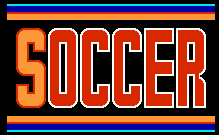
| |
| Developer(s) | Nintendo Hamster Corporation |
| Publisher(s) | Nintendo Hamster Corporation |
| Genre(s) | Sports |
| Console/platform of origin | NES |
| First installment | Soccer (1985) |
| Latest installment | Arcade Archives Soccer (2020) |
Soccer (サッカー, Soccer) is an association football game released on the NES.
A portion of the music during gameplay appears in the Famicom Medley track in Super Smash Bros. Brawl.
In both Brawl and Super Smash Bros. for Wii U, the Soccer Ball item's trophy states that its debut game is Soccer for the NES.
Soma Bringer[edit]
| Soma Bringer (universe) | |
|---|---|

| |
| Developer(s) | Monolith Soft |
| Publisher(s) | Nintendo |
| Genre(s) | Role-playing |
| Console/platform of origin | DS |
| First installment | Soma Bringer (2008) |
| Latest installment | Soma Bringer (2008) |
Soma Bringer (ソーマブリンガー, Soma Bringer) is a role-playing game for the Nintendo DS released only in Japan developed by Monolith Soft.
The Attack (Soma Bringer) theme plays on the Coliseum stage in Super Smash Bros. for Wii U.
Welt, the main protagonist, as well as Idea, one of the main party members, both appear as spirits in Super Smash Bros. Ultimate. Attack - Soma Bringer returns, this time playing on stages listed in the "Other" category and, as of update version 8.1.0, the "Super Smash Bros." category.
Stunt Race FX[edit]
| Stunt Race FX (universe) | |
|---|---|

| |
| Developer(s) | Nintendo Argonaut Software |
| Publisher(s) | Nintendo |
| Genre(s) | Racing |
| Console/platform of origin | SNES |
| First installment | Stunt Race FX (1994) |
| Latest installment | Stunt Race FX (1994) |
Stunt Race FX (ワイルドトラックス, Wild Trax) is a cartoon-style, 3D-racing video game for the SNES developed by Argonaut Software.
F-Type and Tractor Trailer appear as stickers in Super Smash Bros. Brawl.
F-Type and Tractor Trailer both return as spirits in Super Smash Bros. Ultimate.
There is an empty music track filename in Brawl's files labelled "snd_bgm_R01_WILDTRACKS", which is assumed to be part of this universe, since Wild Trax is the Japanese name for Stunt Race FX. However, it is unknown which music track this filename was meant to host.
Style Savvy[edit]
| Style Savvy (universe) Style Boutique (universe) | |
|---|---|

| |
| Developer(s) | syn Sophia Nintendo |
| Publisher(s) | Nintendo |
| Genre(s) | Simulation |
| Console/platform of origin | DS |
| First installment | Style Savvy (2008) |
| Latest installment | Style Savvy: Styling Star (2017) |
| Article on NintendoWiki | Style Savvy (universe) Style Boutique (universe) |
Style Savvy (ガールズモード, Girls Mode) is a series of fashion simulation games where the player owns a clothing store, participates in fashion shows, and can put their custom clothes up for download for other players online.
Evie, the owner of the shop in the Japanese and PAL versions of Trendsetters, appears as a trophy in Super Smash Bros. for Nintendo 3DS, Interestingly, Evie is referred to as "Michaela" in the North American version of Smash 3DS, who was actually a distinct character that replaces Evie in North American versions of Trendsetters. There are also two music tracks that play on the Wuhu Island stage in Super Smash Bros. for Wii U: Style Savvy: Trendsetters and Pop Fashion Show.
The girl who appears on the Japanese cover of the first Style Savvy game (Referred to as "Shop Assistant") appears as a spirit in Super Smash Bros. Ultimate. Style Savvy: Trendsetters and Pop Fashion Show both return, along with the addition of the song Ring a Ding from Style Savvy: Styling Star ("Ring! Dong! Dang!" in the Japanese version). All three tracks play on stages listed in the "Other" category and, as of update version 8.1.0, the "Super Smash Bros." category.
Sushi Striker[edit]
| Sushi Striker (universe) | |
|---|---|
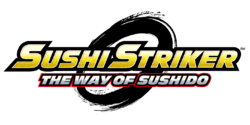
| |
| Developer(s) | Nintendo indieszero |
| Publisher(s) | Nintendo |
| Genre(s) | Action Puzzle |
| Console/platform of origin | 3DS Switch |
| First installment | Sushi Striker: The Way of Sushido (2018) |
| Latest installment | Sushi Striker: The Way of Sushido (2018) |
Sushi Striker: The Way of Sushido (超回転 寿司ストライカー The Way of Sushido, Super Rotating Sushi Striker: The Way of Sushido) is an action-puzzle game about the player attempting to revert a ban on sushi, all while battling opponents by matching up various sushi platters on conveyor belts to damage them.
The male version of the game's protagonist, Musashi, appears as a spirit in Super Smash Bros. Ultimate.
Prior to post game additions, Sushi Striker was the newest universe represented in Super Smash Bros. Ultimate, releasing six months before the release of Ultimate.
Sutte Hakkun[edit]
| Sutte Hakkun (universe) | |
|---|---|
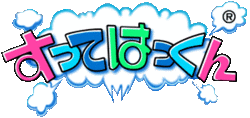
| |
| Developer(s) | indieszero Nintendo |
| Publisher(s) | Nintendo |
| Genre(s) | Platformer Puzzle |
| Console/platform of origin | Super Famicom (Satellaview) |
| First installment | Sutte Hakkun Event Version (1997) |
| Latest installment | Sutte Hakkun '98 Winter Event Version (1998) |
Sutte Hakkun (すってはっくん, Sutte Hakkun) is a Japan-exclusive puzzle game developed by indieszero and published by Nintendo. In the game, the protagonist Hakkun must absorb paint and spit it out into blocks to make them move, then gather rainbow shards to complete levels.
Hakkun appears as a spirit in Super Smash Bros. Ultimate.
Takt of Magic[edit]
| Takt of Magic (universe) | |
|---|---|

| |
| Developer(s) | Taito |
| Publisher(s) | Nintendo |
| Genre(s) | Role-playing |
| Console/platform of origin | Wii |
| First installment | Takt of Magic (2009) |
| Latest installment | Takt of Magic (2009) |
Takt of Magic (タクトオブマジック, Takt of Magic) is a Japan-exclusive role-playing game for the Wii developed by Taito. It is a spiritual successor to the Taito-developed Nintendo DS RPG, LostMagic.
Orville, the main protagonist, appears as a spirit in Super Smash Bros. Ultimate.
Tank Troopers[edit]
| Tank Troopers (universe) | |
|---|---|
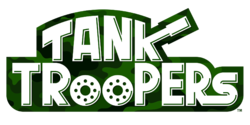
| |
| Developer(s) | Nintendo Vitei |
| Publisher(s) | Nintendo |
| Genre(s) | Action Third-person shooter |
| Console/platform of origin | 3DS (eShop) |
| First installment | Tank Troopers (2016) |
| Latest installment | Tank Troopers (2016) |
Tank Troopers (タンクトゥルーパーズ, Tank Troopers) is a tank-based action third-person shooter game released for the Nintendo 3DS eShop, in which players battle it out with over 30 customizable tanks.
The Garage theme appears as a music track in Super Smash Bros. Ultimate, playing on stages listed in the "Other" category and, as of update version 8.1.0, the "Super Smash Bros." category.
Teleroboxer[edit]
| Teleroboxer (universe) | |
|---|---|

| |
| Developer(s) | Nintendo |
| Publisher(s) | Nintendo |
| Genre(s) | Fighting |
| Console/platform of origin | Virtual Boy |
| First installment | Teleroboxer (1995) |
| Latest installment | Teleroboxer (1995) |
Teleroboxer (テレロ ボクサー, Teleroboxer) is a fighting game released for the Virtual Boy, set in the 22nd century, in which the player uses a technology called "Telerobotics" in order to compete in a "Teleroboxing" tournament.
Harry, the main protagonist, appears as a spirit in Super Smash Bros. Ultimate.
Tennis[edit]
| Tennis (universe) | |
|---|---|

| |
| Developer(s) | Nintendo Hamster Corporation |
| Publisher(s) | Nintendo Hamster Corporation |
| Genre(s) | Sports |
| Console/platform of origin | NES |
| First installment | Tennis (1984) |
| Latest installment | Arcade Archives VS. Tennis (2020) |
Tennis (テニス, Tennis) is a tennis video game developed and published by Nintendo for the NES and Game Boy.
A pair of Tennis Players from the game appear as a shared spirit in Super Smash Bros. Ultimate.
Thru[edit]
| Thru (universe) Ketzal's Corridors (universe) | |
|---|---|

| |
| Developer(s) | Keys Factory |
| Publisher(s) | Nintendo |
| Genre(s) | Puzzle |
| Console/platform of origin | Wii (WiiWare) |
| First installment | ThruSpace (2010) |
| Latest installment | Ketzal's Corridors (2011) |
Thru (すりぬけアナトウス, Slip-Through Anatos) is a series of puzzle games where the player has to make floating shapes fit through holes by flipping or turning them. In 2010, the first game, called ThruSpace, released on the WiiWare on the Wii Shop Channel. The game then received a sequel for the Nintendo 3DS eShop called SpeedThru: Potzol's Puzzle in PAL regions and Ketzal's Corridors in North America.
A trophy depicting three Guardians (King Prana, King Leo, and King Croco) from Ketzal's Corridors appears in Super Smash Bros. for Nintendo 3DS.
Tomato Adventure[edit]
| Tomato Adventure (universe) | |
|---|---|
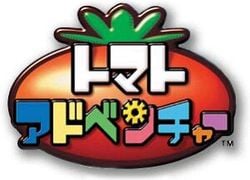
| |
| Developer(s) | AlphaDream |
| Publisher(s) | Nintendo |
| Genre(s) | Role-playing |
| Console/platform of origin | Game Boy Advance |
| First installment | Tomato Adventure (2002) |
| Latest installment | Tomato Adventure (2002) |
Tomato Adventure (トマトアドベンチャー, Tomato Adventure) is a role-playing game released on the Game Boy Advance in which the protagonist must save his girlfriend, Patharan, from the evil King Abira, all while recruiting new allies and using unique toy-like weapons called "Gimmicks".
DeMille, the main protagonist, and the Tomatrio appear as spirits in Super Smash Bros. Ultimate.
Trace Memory[edit]
| Trace Memory (universe) Another Code (universe) | |
|---|---|
| Developer(s) | Cing Arc System Works |
| Publisher(s) | Nintendo |
| Genre(s) | Adventure, puzzle |
| Console/platform of origin | DS |
| First installment | Trace Memory (2005) |
| Latest installment | Another Code: Recollection (2024) |
Trace Memory, known as Another Code (アナザーコード, Another Code) outside of North America, is a visual novel puzzle game series debuting on the Nintendo DS that revolves around central character Ashley Robbins, who must solve puzzles to unlock the mystery surrounding her missing parents. In 2009, a sequel for the Wii was released only in Japan and Europe, which was one of the last games made by Cing before the company went bankrupt. In January 2024, remakes of both games were released on the Nintendo Switch as Another Code: Recollection.
Ashley Robbins appears as a trophy in Super Smash Bros. Brawl. Ashley Robbins, Ashley viewing the DTS, Jessica, and the Captain appear as stickers in Super Smash Bros. Brawl.
Ashley Robbins returns as a spirit in Super Smash Bros. Ultimate, this time based on her appearance in Another Code: R – A Journey into Lost Memories.
Tsukutte Utau: Saru Band[edit]
| Tsukutte Utau: Saru Band (universe) | |
|---|---|
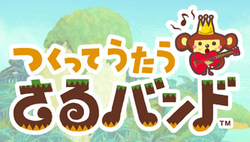
| |
| Developer(s) | Muu Muu |
| Publisher(s) | Nintendo |
| Genre(s) | Music |
| Console/platform of origin | DSi (DSiWare) |
| First installment | Tsukutte Utau: Saru Band (2010) |
| Latest installment | Tsukutte Utau: Saru Band (2010) |
Tsukutte Utau: Saru Band (つくってうたう さるバンド, Compose and Sing: Monkey Band) is a music creator game released for the DSiWare service in which the player can create their own songs for a band of monkeys to sing.
Prince Saruno, the main character, appears as a spirit in Super Smash Bros. Ultimate.
Urban Champion[edit]
| Urban Champion (universe) | |
|---|---|
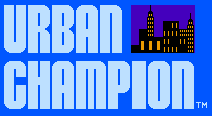
| |
| Developer(s) | Nintendo Arika Hamster Corporation |
| Publisher(s) | Nintendo Hamster Corporation |
| Genre(s) | Fighting |
| Console/platform of origin | NES |
| First installment | Urban Champion (1984) |
| Latest installment | Arcade Archives Urban Champion (2018) |
Urban Champion (アーバンチャンピオン, Urban Champion) is an early fighting game released for the NES.
The game's victory theme appears as the last song in the Famicom Medley track in Super Smash Bros. Brawl before the track starts all over.
The playable Fighter, as he appears on the Famicom and PAL covers, appears as a spirit in Super Smash Bros. Ultimate.
Additionally, the main character of Urban Champion was one of the many considered characters for Melee to represent the NES era of games; he was rejected in favor of the Ice Climbers due to a lack of unique moves that he could perform in battle.[4]
Volleyball[edit]
| Volleyball (universe) | |
|---|---|
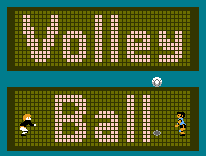
| |
| Developer(s) | Nintendo |
| Publisher(s) | Nintendo |
| Genre(s) | Sports |
| Console/platform of origin | NES (Famicom Disk System) |
| First installment | Volleyball (1986) |
| Latest installment | Volleyball (1986) |
Volleyball (バレーボール, Volleyball) is is a volleyball game released for the Famicom Disk System in Japan and NES in North America and the PAL regions.
A female volleyball player, as she appears on the Disk System cover, appears as a spirit in Super Smash Bros. Ultimate.
Wave Race[edit]
| Wave Race (universe) | |
|---|---|

| |
| Developer(s) | Nintendo Pax Softnica |
| Publisher(s) | Nintendo |
| Genre(s) | Racing |
| Console/platform of origin | Game Boy |
| First installment | Wave Race (1992) |
| Latest installment | Wave Race: Blue Storm (2001) |
| Article on NintendoWiki | Wave Race (universe) |
Wave Race (ウエーブレース, Wave Race) is a series of jet-ski racing games released for Game Boy (Western regions only), Nintendo 64, and GameCube. A title for Wii was also pitched, but was rejected after the team's previous title, Project H.A.M.M.E.R., was canceled and Nintendo lost confidence in the team.
The flagship character of the latter two, Ryota Hayami, appears as a trophy in Super Smash Bros. Melee.
Ryota Hayami returns as a sticker in Super Smash Bros. Brawl, alongside Akari Hayami, Rob Haywood, and the logo for Wave Race: Blue Storm (all 4 using their Wave Race: Blue Storm artwork).
Ryota Hayami returns as a spirit in Super Smash Bros. Ultimate.
Wild Gunman[edit]
| Wild Gunman (universe) | |
|---|---|

| |
| Developer(s) | Nintendo |
| Publisher(s) | Nintendo |
| Genre(s) | Light gun shooter |
| Console/platform of origin | NES |
| First installment | Wild Gunman (1984) |
| Latest installment | Wild Gunman (1984) |
Wild Gunman (ワイルドガンマン, Wild Gunman) is an NES game compatible with the NES Zapper based on an arcade game developed by Gunpei Yokoi in 1974, where the player has to shoot a series of gunmen, but they cannot shoot them until the moment they yell "FIRE!".
A sticker of the gunman on the Famicom/PAL NES cover appears as a sticker in Super Smash Bros. Brawl.
All 5 of the enemy gunmen would later appear as a part of Duck Hunt's down special move (called Wild Gunman), as well as appearing in Duck Hunt's Final Smash, NES Zapper Posse, in Super Smash Bros. 4.
The gunmen reprise their roles in Super Smash Bros. Ultimate. Additionally, the Wild Gunman seen on the sticker from Brawl returns as a spirit.
X[edit]
| X (universe) | |
|---|---|
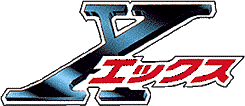
| |
| Developer(s) | Nintendo Argonaut Software Q-Games |
| Publisher(s) | Nintendo |
| Genre(s) | Vehicular combat |
| Console/platform of origin | Game Boy |
| First installment | X (1992) |
| Latest installment | X-Scape (2010) |
X (エックス, X) is a series of vehicular combat games. The series debuted with the Japan-only Game Boy game X, which would later get a sequel released on the DSiWare called X-Scape, which did receive an international release unlike its predecessor.
The Training Academy Coach appears as a sticker in Super Smash Bros. Brawl. A remix of a music track from the first game, Tunnel Scene (X), plays on the Lylat Cruise stage's My Music.
Tunnel Scene (X) returns in Super Smash Bros. for Wii U on the same stage. A music track from X-Scape, Tunnel Theme (X-Scape), appears in Super Smash Bros. for Wii U as music for the Orbital Gate Assault stage.
The Training Academy Coach returns as a spirit in Super Smash Bros. Ultimate, this time referred to as "Commander". Both Tunnel Scene - X and Tunnel Scene - X-Scape return, this time playing on stages listed in the "Other" category and, as of update version 8.1.0, the "Super Smash Bros." category.
Yakuman[edit]
| Yakuman (universe) | |
|---|---|
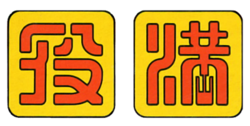
| |
| Developer(s) | Nintendo Hudson Soft Intelligent Systems Chatnoir Nd Cube Hamster Corporation |
| Publisher(s) | Nintendo Hamster Corporation |
| Genre(s) | Board game |
| Console/platform of origin | NES |
| First installment | Mahjong (1983) |
| Latest installment | Arcade Archives Vs. Mah-Jong (2020) |
| Article on NintendoWiki | Yakuman (universe) |
Yakuman (役満, Yakuman) is a series of tabletop games based on the Chinese game of Mahjong released on multiple Nintendo consoles. While the first two games on the Famicom were called Mahjong and 4 Nin Uchi Mahjong, respectively, the name Yakuman was first used in a Game Boy Mahjong game, and would be used in every succeeding Mahjong game published by Nintendo afterward (with the exceptions of Zoo-tto Mahjong! and Yōsuke Ide no Kenkō Mahjong DSi). While the Yakuman name has remained in Japan, Nintendo has included multiple Mahjong variations in their Clubhouse Games series, and Hamster Corporation has released Arcade Archives Vs. Mah-Jong, the arcade version of Nintendo's first Mahjong game.
The Yakuman Player on the cover of the Game Boy version appears as a sticker in Super Smash Bros. Brawl.
The same Yakuman Player from Brawl returns as a spirit in Super Smash Bros. Ultimate.
Yūyūki[edit]
| Yūyūki (universe) | |
|---|---|

| |
| Developer(s) | Nintendo Pax Softnica |
| Publisher(s) | Nintendo |
| Genre(s) | Adventure |
| Console/platform of origin | Famicom (Disk System) |
| First installment | Yūyūki (1989) |
| Latest installment | Yūyūki (1989) |
| Article on NintendoWiki | Yūyūki (universe) |
Yūyūki (遊遊記, a parody of the title this story is based on, Saiyūki) is an adventure game loosely based on the Chinese novel Journey to the West. It is part of the Famicom Fairytales series, which also consists of Shin Onigashima.
Two of the main characters, Goku and Chao, appear as a shared spirit in Super Smash Bros. Ultimate. A remix of various themes from the game, titled Yūyūki Medley, appears, playing on stages listed in the "Other" category and, as of update version 8.1.0, the "Super Smash Bros." category.
Zangeki no Reginleiv[edit]
| Zangeki no Reginleiv (universe) | |
|---|---|
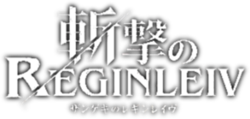
| |
| Developer(s) | Sandlot |
| Publisher(s) | Nintendo |
| Genre(s) | Action |
| Console/platform of origin | Wii |
| First installment | Zangeki no Reginleiv (2010) |
| Latest installment | Zangeki no Reginleiv (2010) |
Zangeki no Reginleiv (斬撃のREGINLEIV, Slashing Reginleiv) is a gory hack and slash game for the Wii about two young Norse deity siblings who battle giant monsters. The game is notable for being the first Nintendo-published game to receive a D (17+) rating from the CERO.
The game's two protagonists, Frey and Freya, appear as trophies in Super Smash Bros. for Wii U.
Both Frey and Freya return as a shared spirit in Super Smash Bros. Ultimate.
Nintendo hardware[edit]
- See also: Color TV-Game (universe), Game & Watch (universe), Nintendo DS (universe), Miiverse (universe)
A number of game consoles, a GameCube trophy and the item Super Scope in Melee, the item Super Scope and the music tracks Mii Channel and Wii Shop Channel through My Music in Brawl for the stage PictoChat all are based on Nintendo hardware of no specific universe. The Famicom Disk System's mascot, Diskun, cameos as a collectible trophy in Melee, and as a Spirit in Super Smash Bros. Ultimate. In Super Smash Bros. for Nintendo 3DS, a new remix of the Mii Channel plays on the Tomodachi Life stage under the title Mii Plaza. It and a remix of the Wii Shop Channel theme appear in Super Smash Bros. for Wii U, on the Miiverse stage.
References[edit]
